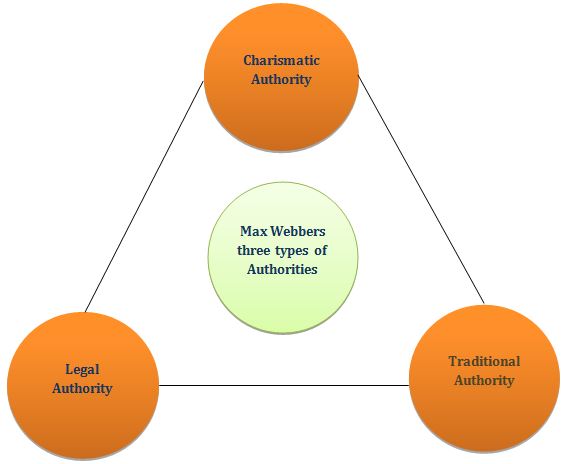Three Types of Legitimate Rule
Each type of authority is legitimate since it involves both explicit and implicit consent of the governed.
A clear hierarchy leads to an efficient organization, comprising of a legitimate and strong relationship between the followers and leaders.
The philosopher and sociologist Max Weber discerns the three types of authorities- Traditional, Legal-Rational, and Charismatic; each of which correspond to a form of leadership that operate in a contemporary society. The one thing which is common in all the three authorities is “legitimacy.” A legitimate authority is justified by both the ruler and the ruled.
Traditional authority can be defined as the power legitimized by respect for long-established cultural patterns. It comes from unwritten rules that are maintained over time. Leaders in traditional authority are people who depend on an established order or tradition. This leader is a dominant personality and the existing order in the society entrusts him the mandate to rule.
Charismatic authority can be defined as the power legitimized by exceptional, unusual, and extraordinary personal abilities which inspire devotion and obedience. Weber identified this extraordinary attribute as ‘Charisma’ whereas Robert Bierstadt called it leadership. Charismatic leaders are seen as people who are inspired by God or by lofty unsocial principles. The charisma of these leaders is enough and adequate to inspire their followers and make their authority seem legitimate. Charismatic authority is inherently unstable and mostly short lived.
Legal authority can be defined as a bureaucratic authority, where power is legitimized by legally enacted rules and regulations such as governments. This form of authority is the one that is grounded and clearly defines laws with explicit procedures that define the obligations and rights. This is largely respected due to the competence and legitimacy that laws and procedures bestow upon the people in the authoritative position.
Contemporary societies depend on this form of authority; as the complexities require the emergence of bureaucracy that embodies systematization and order. Authoritarians can exercise power only within the legally defined boundaries.
According to Weber, “Legal authority rests in the enactment and its pure type is best represented by bureaucracy”. The basic idea is that laws can be changed and enacted by formally correct procedures. The governing body here is either appointed or elected.
A principal founder of modern sociology, Max Weber Jr. was born 21 April 1864, to a prominent Prussian lawyer/politician and a pious mother, in Erfurt.
